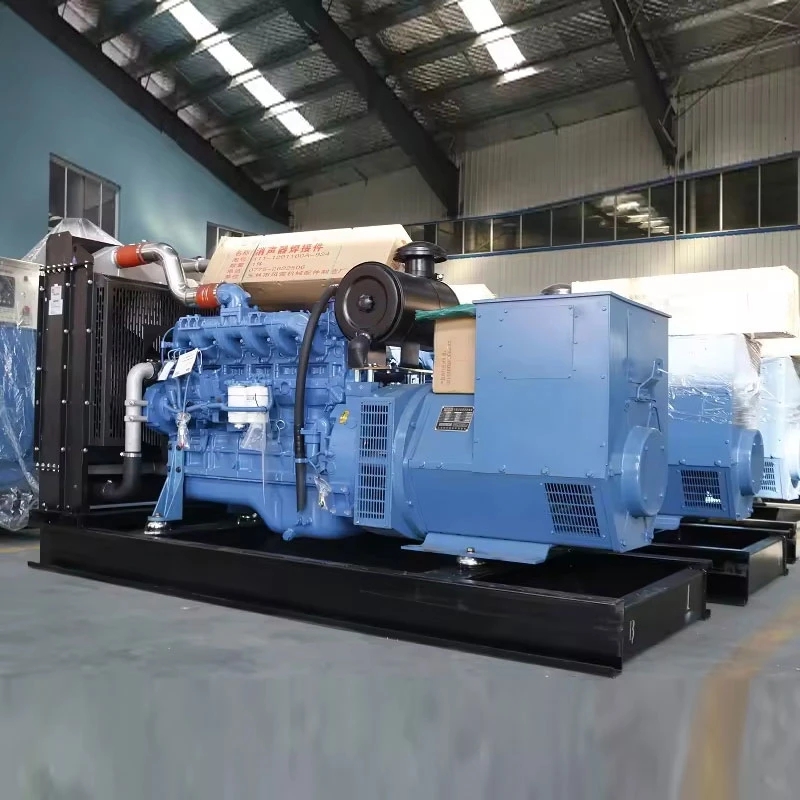Introduction
In the world of manufacturing and product development, the validation of products is a critical step to ensure quality, reliability, and compliance with industry standards. One of the key components in the validation process is the use of diesel generators. Diesel generators play a crucial role in providing reliable and uninterrupted power supply for testing and validating various products across different industries. In this article, we will explore the importance of diesel generators in product validation, their key features, benefits, and best practices for using them effectively.
Importance of Diesel Generators in Product Validation
Product validation is a crucial phase in the product development lifecycle where the performance, functionality, and reliability of a product are tested under various conditions to ensure that it meets all specified requirements. One of the key requirements for conducting product validation tests is a reliable power source that can provide uninterrupted electricity supply for extended periods of time. This is where diesel generators come into play.
Diesel generators are known for their robustness, reliability, and ability to provide consistent power output over long durations. They are widely used in various industries for backup power generation, emergency power supply, and as the primary power source in remote locations where grid power is unavailable. In the context of product validation, diesel generators play a critical role in ensuring that the testing environment is stable and free from power disruptions, which could potentially compromise the accuracy and reliability of the validation results.
Key Features of Diesel Generators for Product Validation
1. Robust and Reliable Performance: Diesel generators are known for their rugged construction and reliable performance, making them ideal for continuous operation during product validation tests that can last for several hours or days.
2. High Power Output: Diesel generators are capable of providing high power output, making them suitable for powering a wide range of testing equipment and instruments used in product validation processes.
3. Fuel Efficiency: Diesel generators are more fuel-efficient compared to petrol generators, which is important for cost-effective and sustainable power generation during product validation tests.
4. Low Maintenance Requirements: Diesel generators are relatively low maintenance machines, requiring periodic checks and servicing to ensure optimal performance, making them a convenient power source for product validation activities.
5. Portability: Diesel generators are available in various sizes and configurations, including portable models that can be easily transported to different testing locations, making them versatile and adaptable to different validation scenarios.

Benefits of Using Diesel Generators for Product Validation
1. Reliability: Diesel generators are known for their reliability and consistent power output, ensuring uninterrupted power supply during product validation tests, thereby minimizing the risk of test disruptions and data loss.
2. Flexibility: Diesel generators can be easily deployed in remote or off-grid locations, allowing product validation tests to be conducted in a wide range of environments and conditions.
3. Cost-Effectiveness: Diesel generators offer a cost-effective power generation solution for product validation activities, especially in scenarios where grid power is unreliable or unavailable.
4. Reduced Downtime: By providing backup power supply, diesel generators help minimize downtime during product validation tests, ensuring that testing schedules are met and deadlines are achieved.
5. click this : Modern diesel generators are designed to meet strict environmental regulations and emission standards, making them a cleaner and more sustainable power generation option for product validation activities.
Best Practices for Using Diesel Generators in Product Validation
1. Proper Sizing: It is important to select a diesel generator with the appropriate power rating to meet the specific power requirements of the product validation tests. Undersized generators may result in power disruptions, while oversized generators may lead to inefficiency and increased operating costs.
2. Regular Maintenance: Regular maintenance and servicing of diesel generators are essential to ensure optimal performance and reliability during product validation tests. This includes checking fuel levels, oil levels, air filters, and cooling systems, as well as conducting load bank testing to verify the generator's capacity.
3. Fuel Quality: Using high-quality diesel fuel is crucial for the efficient operation of diesel generators and to prevent clogging or damage to the engine components. It is recommended to source fuel from reputable suppliers and store it in clean and secure containers.
4. Proper Ventilation: Diesel generators produce exhaust gases that contain harmful emissions, such as carbon monoxide and nitrogen oxides. It is important to ensure proper ventilation in the testing area to prevent the buildup of these gases and to maintain a safe working environment for personnel.
5. Emergency Preparedness: In the event of a power outage or generator failure during product validation tests, it is important to have contingency plans in place, such as backup power sources or alternative testing locations, to minimize disruptions and ensure the continuity of the validation process.
Conclusion
Diesel generators play a vital role in product validation by providing reliable and uninterrupted power supply for testing and validating various products across different industries. Their robustness, reliability, high power output, and fuel efficiency make them an ideal power generation solution for ensuring the stability and accuracy of product validation tests. By following best practices for using diesel generators effectively, manufacturers and product developers can streamline the validation process, minimize downtime, and achieve accurate and reliable validation results. With the right diesel generator setup and maintenance procedures in place, product validation activities can be conducted smoothly and efficiently, ensuring that products meet all specified requirements and quality standards.
